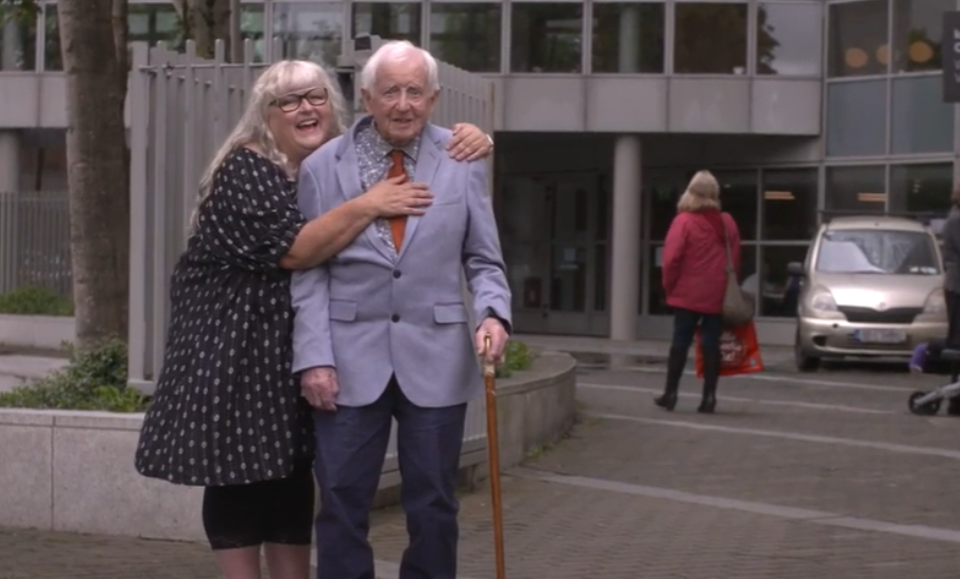Prevention & Treatment Updates
Biogen & Aducanemab (Last updated 20/02/2024)
On January 31, Biogen announced that it has decided to discontinue development and commercialisation of Aducanumab (marketed as Aduhelm) for early Alzheimer’s Disease.
Biogen, with its partner Eisai, will focus on advancing Lecanemab (marketed as Lequembi), the first anti-amyloid beta treatment for Alzheimer’s Disease to be granted traditional approval by the FDA. This decision is not related to any safety or efficacy concerns.
If you would like to read more, please check out Biogen’s statement HERE.

Last updated: 03/07/2024
What is Donanemab (Kisunla) ?
Similar to Lecanemab, Donanemab is an antibody that targets the underlying biology of Alzheimer’s Disease by breaking down amyloid in the brain. Amyloid is a toxic protein that can build up in the brain, which is a factor in those affected by Alzheimer’s Disease. Donanemab was developed by the pharmaceutical company Eli Lilly who have just been given FDA approval for the treatment of Alzheimer’s Disease. It will be marketed in the US under the name Kisunla.
What is the difference between Donanemab (Kisunla) and Lecanemab?
There are many similarities between these drugs. Both are immunotherapies that target the build up of amyloid in the brain. However, Lecanemab targets amyloid earlier in the process as it begins to form fibres whereas Donanemab targets an insoluble form of amyloid once these fibres have clumped together to form a build up of plaque in the brain.
Who is Donanemab (Kisunla) for?
The clinical trial was based on 1,182 primary participants who were aged 60-85 years of age with early Alzheimer’s or mild cognitive impairment (MCI). Those who benefited most from the drug were in the earliest stages of disease and notably had low levels of another toxic protein called tau in their brains. There were additional trial participants with higher levels of a protein called Tau in their brain. Donanemab was less effective for this group (but still had a positive impact) which highlights the important of early diagnosis.
How does Donanemab (Kisunla) help?
Donanemab treatment slowed clinical decline by 35% compared to those who received a placebo. It resulted in a 40% reduction in the decline in the ability to perform activities of daily living (e.g. managing finances, driving, engaging in hobbies, and conversing about current events). 47% of participants showed no clinical progression at one year compared to 29% of people in the placebo group.
The trial was 18 months however participants were said to have ‘completed’ a course of treatment with donanemab once they reached a prespecified level of amyloid plaque clearance from their brain. Over half of all participants ‘completed’ their course of treatment by 12 months and 72% completed by 18 months due to achieving plaque clearance.
It is no yet known what this means in the long term as the trial lasted for only 18 months. It should be noted that 91.5% of participants of this trial were from a white background. It is important that clinical trials strive to have a diverse population to provide evidence on the potential efficacy of these drugs for all people with Alzheimer’s Disease.
Is Donanemab (Kisunla) a cure?
Donanemab is not a cure for Alzheimer’s Disease. People taking Donanemab (Kisunla) do not improve however, the drug did slow down the progression of Alzheimer’s Disease. This means that those who took the drug deteriorated more slowly than those who did not. Donanemab is by no means the perfect treatment but it is a scientific breakthrough that we hope will pave the way for bigger and better treatments. Over the 18 month clinical trial, Donanemab slowed the progression of Alzheimer’s Disease by approximately 4-7 months.
How is Donanemab (Kisunla) administered?
Donanemab is an immunotherapy drug. It is given by a monthly infusion (i.e. into a vein through a drip) over the course of several hours. Careful monitoring of potential side effects is required through regular brain scans.
Are there any risks associated with Donanemab (Kinsula)?
Yes, there are risks associated with this drug.
The safety of the drug was tested in the clinical trial. Many of the adverse events experienced by trial participants were due to reactions from the intravenous drip, which is not uncommon.
There were instances of amyloid-related imaging abnormalities (ARIA) in the trial. This can include symptoms such as temporary swelling and/or microbleeds in an area or areas of the brain. ARIA are usually asymptomatic, although serious and life-threatening events can occur.
In this clinical trial, 24% of people taking Donanemab experienced some temporary brain swelling while 31.4% experienced microbleeds in certain parts of the brain. In most of these cases, participants experienced no symptoms or mild symptoms and it generally resolved on it’s own. However, there were three deaths in the trial related to ARIA.
What are the next steps for Donanemab (Kisunla) ?
Eli-Lilly has received FDA approval for the use of Kisunla injection for the treatment of Alzheimer’s Disease. In Ireland, we are regulated by the European Medicines Agency. Submissions to other regulators including the European Medicines Agency we anticipate will be the next steps.
When will Donanemab (Kisunla) be available in Ireland?
It is too early to say if Kisunla will become available in Ireland. The European Medicines Agency will decide if Kisunla is safe enough and effective enough to be licensed for use in Europe. We will update this page as we learn more.
ASI Reaction
The ASI’s Research & Policy Manager, Dr. Laura O’Philbin, shared a statement on this news.
The Alzheimer Society of Ireland welcomes the news that a second Disease Modifying Therapy, Kisunla, has been approved by the FDA. This decision tells us that Kisunla (Donanemab-azbt) is another credible treatment option that can alter the course of Alzheimer’s Disease and slow its progression. We have entered a new era in which there are now two treatment options for Early Alzheimer’s Disease available in the United States.
It is important to note that these drugs are not cures and they can have serious side effects. Disease Modifying Therapies are only suitable for a small number of people who are in the early stages of Alzheimer’s Disease. There will be countless people for whom this drug will not be helpful. We must continue to advocate for and resource non-pharmacological interventions and supports for people with all types of dementia and their families.
Read our statement in full on this update by clicking HERE.
You can also read Eli-Lilly’s statement HERE.
Other Media
17th July 2023 – The Alzheimer Society of Ireland Welcomes Positive Results from Donanemab Trial: Press Release HERE.
The ASI’s Research & Policy Manager, Dr. Laura O’Philbin, appeared on RTÉ’s Prime Time to discuss donanemab. You can watch this back HERE.
Dr. Laura O’Philbin also joined Virgin Media One’s The Tonight Show to further discuss donanemab. You can watch it back HERE (starting at approx 24.00).
Dr. Laura O’Philbin also appeared on RTE Radio One’s Morning Ireland to speak about Donanemab in the Irish context. You can listen back HERE.

*This page was last updated 12/7/23.
Read The Alzheimer Society of Ireland’s statement on today’s announcement from the FDA HERE.
What is Lecanemab?
Lecanemab is an antibody that targets the underlying biology of Alzheimer’s Disease. People with Alzheimer’s Disease have a sticky toxic build-up of a protein called amyloid in their brain. These drugs work with our body’s immune systems to target amyloid and try to break it down. This is thought to slow down the progression of the disease. Lecanemab was developed by pharmaceutical companies Biogen and Eisai.
Who is it for?
This drug is only for people with a Mild Cognitive Impairment (MCI) or early-stage Alzheimer’s Disease (AD). It will only be helpful for a small number of people. Therefore, we must continue to advocate for and resource non-pharmacological interventions and supports for people affected by all types of dementia and their families.
How effective is Lecanemab?
Approximately 1,795 participants with early-stage Alzheimer’s were treated using Lecanemab as part of a Phase 3 clinical trial, CLARITY-AD. The study found that cognitive decline was 27% slower over 18 months in people who took Lecanemab versus those who didn’t. Researchers estimate that over an 18 month period, the drug may slow progression of the disease by approximately 7 months. Findings also showed that the drug slowed the decline in quality of life by up to 56%.
Importantly, research has shown the Lecanemab reduced the amount of amyloid protein present in the brain, and also in blood and spinal fluid.
How is Lecanemab administered?
It is administered every two weeks by intravenous infusion, which means into a vein in the arm through a drip (i.e. directly into the bloodstream).
Is Lecanemab a cure?
This is not a cure, but it is an approved treatment that addresses the underlying biology of Alzheimer’s Disease and has the power to slow progression.
We have waited decades for these new disease modifying therapies and drugs such as Lecanemab to come to market. Scientifically, this is a breakthrough that will contribute to newer drugs to be developed worldwide and increase efforts in disease control.
What are the potential side effects / risks?
As with every drug, some people may experience negative side effects as a result of taking Lecanemab. The most common side effect of this treatment is an infusion related reaction, which may include symptoms such as flushing, chills, fever, headache. The prescribing information includes a warning for amyloid-related imaging abnormalities, also known as ARIA, which are known to occur with antibodies like these.
Not all patients may experience ARIA (Amyloid related imaging abnormalities) but there are some signs and symptoms. Some people may not experience symptoms, but in rare cases these can be life threatening. This can include temporary brain swelling and small bleeds, with some people also experiencing headaches, confusion and visual disturbances. These can be detected on MRI scans. People who are on blood thinning medication are thought to be at a higher risk of ARIA, therefore may need to consult with their doctor to discuss if this treatment would be appropriate for them.
When will Lecanemab/Leqembi be available in Ireland?
We expect the European Medicines Agency to make a recommendation to the European Commission on whether Leqembi should be approved for use in Ireland and Europe in the first half of 2024. Then, in Ireland, the National Centre for Pharmacoeconomics will likely carry out a cost-benefit analysis and/or a Health Technology Assessment (HTA) on the drug to assess its cost effectiveness and make a recommendation to the HSE.
Future of drug treatments
While we are awaiting news from the European Medicines Agency on the approval for Leqembi in Ireland, there are a number of other drugs, such as Donanemab, which are still in clinical trial stage. Results from this particular clinical trial are due to be presented later in July as part of the Alzheimer’s Association International Conference in Amsterdam.
Other Media
• 6th January 2023 – The Alzheimer Society of Ireland Responds to FDA Approval of Lecanemab: Press Release HERE.
• You can also watch The ASI’s Research & Policy Manager, Dr. Laura O’Philbin discuss it’s implications on RTE News here.
Dr. Laura O’Philbin also spoke with Seán Moncrieff on Newstalk on Lecanemab as a new drug therapy for people with MCI or early stage Alzheimer’s Disease. Listen back below.
14th November 2022 – The Alzheimer Society of Ireland Responds to Results of Gantenerumab
The Alzheimer Society of Ireland is disappointed to hear that major Phase III clinical trials on the drug gantenerumab did not meet their primary endpoints in slowing down the progress of Alzheimer’s disease.
On 14/11/2022, pharmaceutical company Roche announced top-line results of a major trial on gantenerumab in slowing down Alzheimer’s Disease progress.
Gantenerumab was not shown to significantly slow down the progression of Alzheimer’s Disease in Phase III of the GRADUATE I and II studies, therefore not meeting the primary endpoints.
Gantenerumab is an antibody which targets amyloid in the brain and the level of amyloid removal by the drug was lower than expected.
Further data on the results will be available in November this year at the Clinical Trials in Alzheimer’s Disease conference in the United States.
There are currently an estimated 64,000 people with dementia in Ireland, and by 2045, that number is anticipated to increase to 150,000.
Responding to this news, The ASI Research and Policy Manager, Dr Laura O’Philbin, said:
“This news is not what we had hoped for and will be disappointing for all those impacted by dementia across the world.
However, it’s important to remember that we are now in a space where there are several potential treatments undergoing late stage clinical trials across the world. We received encouraging news about the Lecanemab drug just a few months ago and anticipate other trial announcements in 2023. There will be significant learnings to take away from this and we are heartened to hear that Roche remains committed to Alzheimer’s Disease.”
To participate in all kinds of research, we encourage people with dementia and their families to sign up for TeamUp For Dementia Research.
TeamUp For Dementia Research is a service is provided by The ASI in collaboration with Dementia Research Network Ireland, which helps people affected by dementia learn about and participate in dementia research across Ireland. Please visit our webpage for further information on The Alzheimer Society of Ireland’s research activities or sign up for our research news updates HERE.
The full statement by Roche is available HERE.








